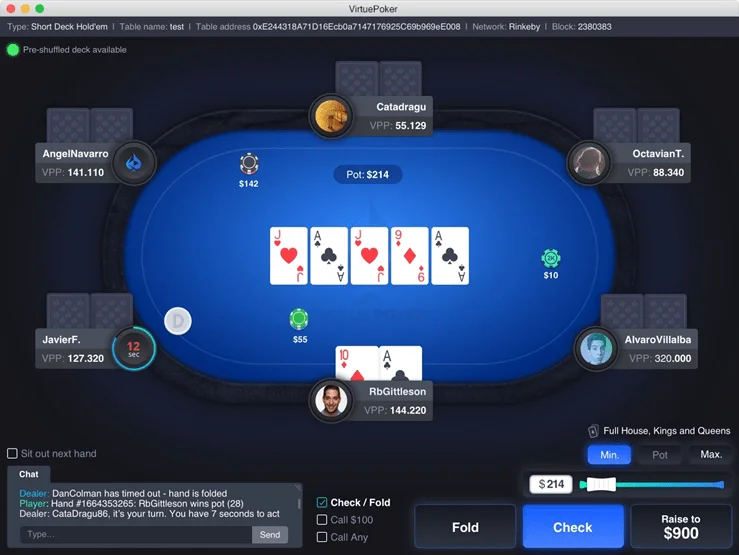The first play-to-earn (P2E) digital poker casino in the United States was opened on Friday by Virtue Gaming, a decentralized online poker platform built on the Ethereum (ETH) blockchain.

Virtue Gaming opens the first P2E in USA
The first play-to-earn digital poker casino in the United States was opened on Friday by Virtue Gaming, a decentralized online poker platform built on the Ethereum (ETH) blockchain.
Only six states in the United States have allowed and regulated internet poker (Nevada, Delaware, New Jersey, Pennsylvania, West Virginia, and Michigan).
Because of worries that overseas poker platforms would steal money away from domestic, land-based gambling establishments, the country has been sluggish in acting on the issue. Furthermore, even in the aforementioned states, poker websites must receive licenses from each government in order to function.
Gamers in the USA receive 500 virtual player points valued at $147.37 USD
As a result, citizens of the United States are often unable to access famous online poker platforms such as PokerStars or 888 Poker, which are available to players all over the world. To address this issue, Virtue Gaming developed a play-to-earn model in which gamers receive 500 Virtual Player Points, or VPP, valued at $147.37 USD.
These will be given to players for free when they sign up. Players can cash out their VPP for USDT after meeting the necessary playing requirements in cash games and tournaments.
Players from the United States would then be able to compete against players from around the world who stake in the game by transferring VPP, ETH, or other cryptos into Virtue Gaming’s locked sidechain smart contracts. For all decks, the platform uses peer-to-peer encrypted shuffling to avoid cheating.
According to legislation, points or credits that the sponsor of the game or contest provides to participants free of charge and can be used or redeemed only for participation in games or contests offered by the sponsor” fall outside the legal definition of a bet or wager, and could theoretically allow the play-to-earn model some regulatory leeway.
At the time of publication, the site had over 25,000 players from outside the United States.
